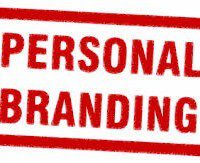It is far from a unanimous belief that personal branding is a good thing. It can become particularly contentious when it comes to an employee’s personal branding. I have heard of top executives talk about “disloyalty.” Others talk about “outsized” egos. Reality is that, like most anything, this is not and cannot be black and white. Personal branding is not necessary for everyone and, indeed, can be counter productive when done wrong. That said, I firmly believe personal branding should be promoted in the right way in business.
Learning to brand personally
While individuals may not feel encouraged or empowered to define and promote their own personal brand while working for a large corporate, I would posit that companies should, at a minimum, be providing guidance and training on how to do so. Why should a company invest in helping its employees with their personal branding? Here are some of the big reasons why I believe so:
- Especially in a business where products are not the decisive USP, a company is as strong as the quality of employees it hires {Tweet this!}
- Employees who feel that they are learning and growing will inevitably be more motivated
- A brand’s first and strongest fans should be its employees
- Employees with powerful personal networks and influence should be prized
- Employees who learn to manage effectively their own personal presence and online network (and who are fans of the company for which they work) will be able to help amplify a corporate message with a human and more authentic touch… {Tweet this!}
It is my distinct belief that organizations should be strategically considering how to help their employees (not to mention the executive C-suite) to manage their own personal brands as part of an overall digital strategy. {Tweet this!} There is a big caveat: if the products & services it is selling are not up to scratch, if it has things to hide (e.g. ethically questionable) and its internal culture is not particularly appreciated by its staff, then there are bigger problems at hand!
Branding gets personal
If employees should be encouraged to strengthen their own personal branding (on and offline), there is a WIIFM* for the employee in the form of the only transferable asset after working at a company. The WIIFM for the company — at a strategic level — is that the customer is more easily engaged with a person than with an institution. We are now in a world where there are many more customer-facing situations, where employees have direct access to customers (and vice versa). Whether it is the salesperson, customer service representative, store staff or someone manning the social media channels, there are now many more human-intensive touchpoints. Thus, a brand has multiple opportunities to engage and personalize a service. As a brand moves up the luxury scale, it is my deep conviction that the quality of the employee becomes even more critical. If brands talk about more “personalization” thanks to digital tools and platforms, the highest privilege is time and personal treatment. A CRM program that sends out personalized messages where the name field is automated to read “Dear firstname,” this is a far cry from a personal service that goes above and beyond expectations.
In this environment, it becomes distinctly more important to align brand values and expected behaviors with the employee’s personal values and attitude.{Tweet this!} This is at the heart of what I mean when I say that branding gets personal. It is an affair of human beings (employees) serving human beings (customers). And, hell yes, take it personally!
Your reactions please!
*WIIFM – What’s in it for me













Value your staff and your staff values the brand/management, a two way relationship where each individual gives its best, in an ideal world.
Great article Minter. Most companies I’ve worked with value hiring people with strong personal brands:
>> If you can hire two employees who are equally qualified, do you take the one with the weakest or the strong personal brand?
If the answer is the person with the strongest personal brand, then the answer to the question “should you encourage your employees to build their personal brand?” is simple: YES!
A question that this article is sparking is:
>> What are all the ways in which the relation between a company and its employees is changing?